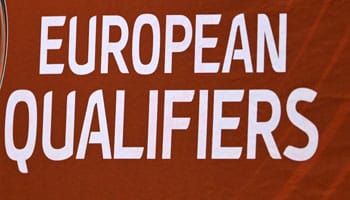England, Scotland, Spain, France, Portugal, Turkey, Belgium and Austria all secured their places at Euro 2024 in the latest round of qualifying fixtures.
Here, we take a look at what is still to be resolved in November and the play-offs in Euro 2024 qualifying.
Group A
Scotland and Spain have both qualified for the finals, but top spot remains up for grabs.
Spain head to Cyprus and then host Georgia, while Scotland face a trip to Tbilisi before welcoming Norway to Hampden Park – where the Tartan Army are expected to revel in a Euro 2024 qualification party.
Georgia are set to go into the play-offs based on their Nations League ranking as a group winner.
Norway are one of several countries who will have to wait on all the other results to see if they can make the cut as one of 12 teams split through three paths.
Group B
While France have qualified automatically for the finals as group winners, the Netherlands still have work to do.
The Dutch edged past Greece with a stoppage-time penalty from captain Virgil van Dijk on Monday night – and victory over the Republic of Ireland in Amsterdam will secure a top-two finish.
Greece, though, could also still reach Euro 2024, having already been assured of a place in the play-offs.
Indeed because of UEFA’s complex weighted system based on overall Nations League rankings, the Republic are still not theoretically out of the running to be involved in the play-offs in March – and could even see their slim hopes boosted by a loss in Amsterdam on November 18 if other results also fall into place.
Group C
England’s 3-1 win over Italy at Wembley on Tuesday night saw them qualify with two matches left.
Italy are third, but qualification remains in their own hands if they can beat North Macedonia.
The Azzurri would then edge out Ukraine to the runners-up spot should they go on to avoid defeat in the final group game between the two countries in Leverkusen on November 20.
Italy are also assured of place in the play-offs should it be needed.
Group D
Turkey have secured qualification, but the race to join them looks set to go to the wire.
Wales will if they beat Armenia in Yerevan and Croatia suffer an unexpected defeat away to Latvia.
Armenia, though, are still not out of the mix, sitting just three points behind Wales and Croatia with two games left.
Qualification could all hinge on the very last round of fixtures – which sees Wales host Turkey in Cardiff and Croatia play Armenia in Zagreb on November 21.
However, Croatia are assured of at least a play-off spot if they do not qualify automatically.
Group E
In another tight group, leaders Albania, the Czech Republic, Poland and even Moldova can all still qualify.
Albania will qualify if they avoid defeat by Moldova in their next match or if Poland – currently third and with just one game left – beat the Czechs.
An away win in Warsaw, though, would see the Czech Republic qualify if Moldova do not beat Albania.
Moldova have two games left, which they realistically would need to win to keep in the qualification mix.
Despite being bottom of the table with just one point from seven games, the Faroe Islands could yet find themselves in the play-offs depending on other results.
Group F
Austria and group leaders Belgium have both qualified.
Belgium’s game against Sweden at the King Baudouin Stadium on Monday night was abandoned at half-time after two people were shot dead in Brussels. It has yet to be confirmed whether the fixture will be replayed.
Azerbaijan are not theoretically out of play-off contention, while bottom side Estonia are the top-ranked team from Nations League Group D.
Group G
Leaders Hungary – who have Barnsley midfielder Callum Styles in the squad – missed the chance to qualify after having to recover to draw 2-2 in Lithuania.
However, a point in their next match away to Bulgaria would see them through, as would Montenegro not beating Lithuania.
Second-placed Serbia will qualify if Montenegro fail to win on November 16 or they themselves beat Bulgaria in their last game.
Bottom side Bulgaria have slim play-off hopes, but Serbia are secured a spot if they need it as one of the Nations League group winners.
Group H
Slovenia, who beat Northern Ireland in Belfast on Tuesday night, and Denmark are in the driving seat to qualify, sitting four points clear of Kazakhstan.
A win in Copenhagen for either team on November 17 would see them through, as would San Marino getting an unlikely positive result against Kazakhstan.
Finland will go into the play-offs, which is also the likely route for Kazakhstan.
Group I
Switzerland’s fightback with two late goals to draw 3-3 against Belarus left them second in the table, a point behind leaders Romania having played a game less.
Israel – assured of at least a play-off spot – are four points adrift, and have their rearranged match with the Swiss on November 15.
Switzerland will qualify if they win their next two fixtures, while Romania will if the Swiss lose in Tel Aviv and they themselves then beat Israel on November 18.
Romania are set to host Switzerland in the final round of fixtures, while Israel’s postponed match against Kosovo has still to be rescheduled.
Group J
Portugal qualified for the finals as runaway group winners with a 100 per cent record so far through eight games.
Slovakia will also qualify with a match to spare if they avoid defeat against Iceland.
Luxembourg are five points behind, so look likely to go into the play-offs along with Bosnia and Herzegovina.
Join bwin today and receive up to £20 money back as a FreeBet if your first wager (3+ selections at odds of 1/2 (1.5) or greater) is a loser! Terms and conditions apply.














